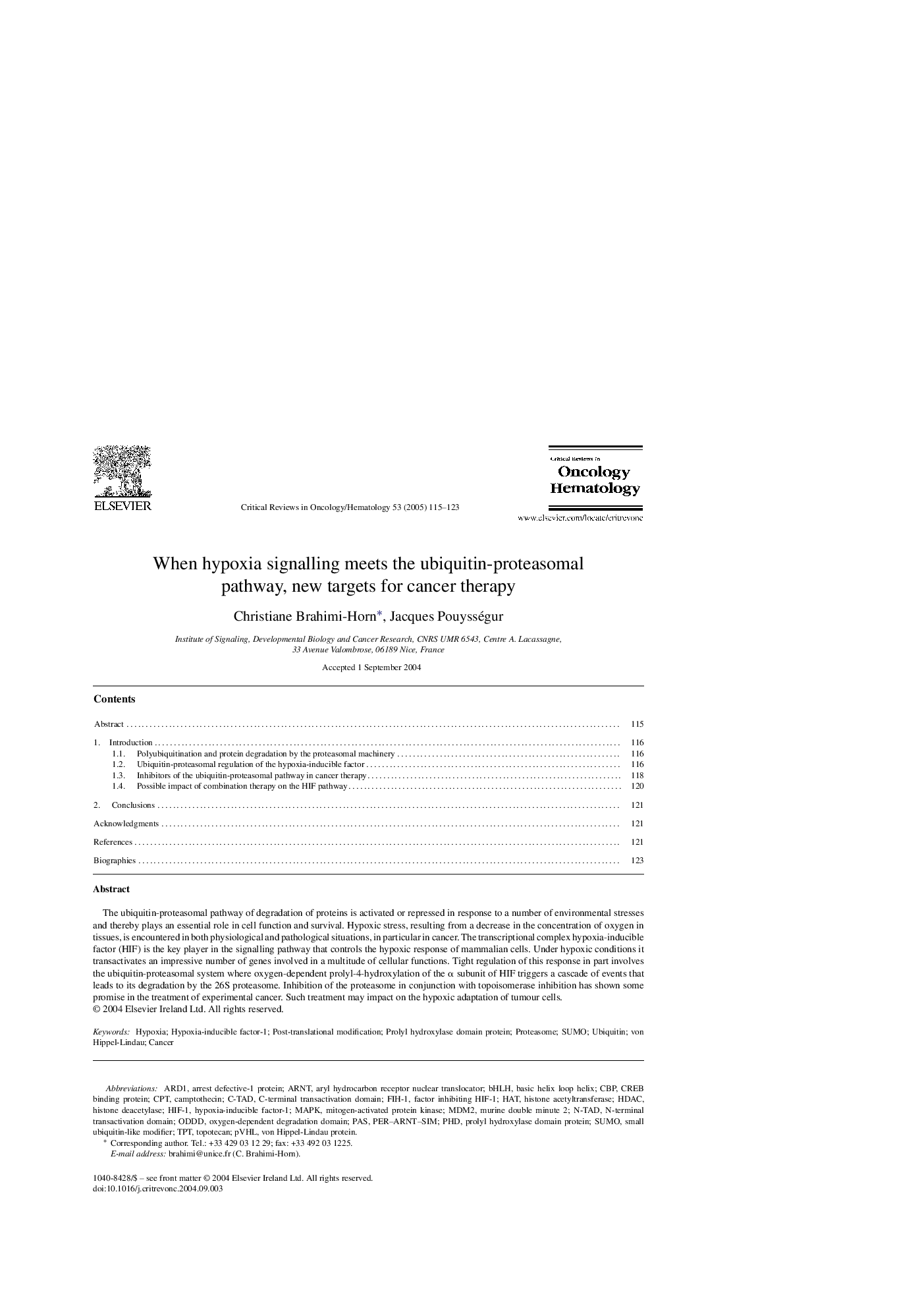| Article ID | Journal | Published Year | Pages | File Type |
|---|---|---|---|---|
| 9257538 | Critical Reviews in Oncology/Hematology | 2005 | 9 Pages |
Abstract
The ubiquitin-proteasomal pathway of degradation of proteins is activated or repressed in response to a number of environmental stresses and thereby plays an essential role in cell function and survival. Hypoxic stress, resulting from a decrease in the concentration of oxygen in tissues, is encountered in both physiological and pathological situations, in particular in cancer. The transcriptional complex hypoxia-inducible factor (HIF) is the key player in the signalling pathway that controls the hypoxic response of mammalian cells. Under hypoxic conditions it transactivates an impressive number of genes involved in a multitude of cellular functions. Tight regulation of this response in part involves the ubiquitin-proteasomal system where oxygen-dependent prolyl-4-hydroxylation of the α subunit of HIF triggers a cascade of events that leads to its degradation by the 26S proteasome. Inhibition of the proteasome in conjunction with topoisomerase inhibition has shown some promise in the treatment of experimental cancer. Such treatment may impact on the hypoxic adaptation of tumour cells.
Keywords
Prolyl hydroxylase domain proteinPHDpVHLARNTC-TADCBPbHLHC-terminal transactivation domainTPTArd1N-TADPer–Arnt–SimHDACHIF-1ODDDfactor inhibiting HIF-1SUMOCPTN-terminal transactivation domainMAPKMdm2aryl hydrocarbon receptor nuclear translocatorvon Hippel-Lindaubasic helix loop helixpost-translational modificationTopotecanFIH-1oxygen-dependent degradation domainmurine double minute 2Cancerhypoxia-inducible factor-1PASHistone acetyltransferasehistone deacetylaseHypoxiaProteasomeCREB binding proteinmitogen-activated protein kinasecamptothecinHATsmall ubiquitin-like modifierUbiquitin
Related Topics
Health Sciences
Medicine and Dentistry
Hematology
Authors
Christiane Brahimi-Horn, Jacques Pouysségur,
